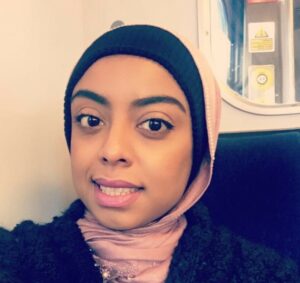In Oman, treatment for addiction is free; however, there is just one tertiary psychiatric hospital with a substance misuse unit, Al Massara Hospital, and this is located in Muscat, the capital city. The substance misuse unit has an out-patient clinic for both male and female patients, two in-patient wards for detoxification and rehabilitation for male patients and a halfway home – also solely for male patients. The treatment includes 1 week of detoxification followed by 7 weeks on a rehabilitation programme. When female patients require in-patient treatment services, they are admitted to the female psychiatric ward.
Oman is an Arab country where Islam, the main religion, affects almost all aspects of life such as family life and social interaction. Omani society has become culturally and ethnically diverse in recent years with nearly half the population of 4.5 million, now made up of expatriates. Rapid industrialisation has brought many changes to Omani culture and society, and this has included an increase in drug use.
There is very little research on drug use or treatment in Oman. One study described the barriers people face when they try to access treatment (Al Wahaibi et al., 2019). Barriers included fear of reputational damage, treatment failure, perceived lack of confidentiality, service availability and negative family reactions. These findings made me want to explore access to treatment in a qualitative study of services for people who use drugs in Oman.

Barriers to treatment for people who use drugs
People who use drugs can find it difficult to access treatment services in any society. In Oman it is even more difficult because of a conservative culture that considers drug addiction a taboo topic. Many people who use drugs are afraid of the social stigma that accompanies being an “addict”. Such stigma does not only risk their own reputation but also that of their families. This ‘shame and blame’ often leads families to seek treatment abroad.
This reflects Social Identity Theory where people who use drugs are seen as having multiple identities in society: an Omani, a Muslim, a drug user and in some cases, a woman.
Women who use drugs find it harder to access treatment in Oman because women are more stigmatised then men. Therefore, there is an under-representation of women who access substance use treatment.
My PhD
There is very little research on barriers and facilitators to drug treatment in Oman. My qualitative study seeks to explore attitudes to drug use and barriers and access to treatment for people who use drugs across a range of communities in Oman.
I will conduct semi-structured interviews, focus groups and to also use vignettes which will be analysed using thematic analysis
I am going to interview Al Massara Hospital staff who work directly with people who use drugs. I will also interview people who use drugs to understand their experiences. I plan to recruit these from Al Massara Hospital substance misuse unit outpatient clinics and inpatient wards as well as from the halfway home, and the Omani NA.
My aim is to use the findings of my research to develop guidelines for improving access to treatment services. They will be aimed at policy makers to have better strategies in making access to treatment easier for people who use drugs. These could be: providing drug treatment services in different geographical locations in Oman, providing telephone interventions, female inpatient treatment services and better representations for female drug users in the clinics with easier facilities such as childcare and social support.
The guidelines will be submitted to the Omani National Committee for Narcotics and Psychoactive Substances (NCNPS) and Al Massara Hospital.

By Qutba Al Ghafri. Qutba is a PhD student at King’s College London. Follow Qutba on Twitter: @qalghafri295.
(article edited for accuracy at the request of the author on 31 January 2022)
References:
- Al Wahaibi, N., Al Lawati, A., Al Ruqeishy, F., Al Khatri, A., Al-Farsi, Y., Juma, T. M. A., Al Hinai, F., Al-Sibani, N., Mahadevan, S., & Al-Adawi, S. (2019). The characteristics and patterns of utilization of healthcare services among Omanis with substance use disorders attending therapy for cessation. PLOS ONE, 14(1), e0210532. https://doi.org/10.1371/journal.pone.0210532
- Gilchrist, G., Moskalewicz, J., Nutt, R., Love, J., Germeni, E., Valkova, I., Kantchelov, A., Stoykova, T., Bujalski, M., Poplas-Susic, T., & Baldacchino, A. (2013). Understanding access to drug and alcohol treatment services in Europe: A multi-country service users’ perspective. Drugs: Education, Prevention and Policy, 21(2), 120–130. https://doi.org/10.3109/09687637.2013.848841
The opinions expressed in this post reflect the views of the author(s) and do not necessarily represent the opinions or official positions of the SSA.
The SSA does not endorse nor guarantee the accuracy of the information in external sources or links and accepts no responsibility or liability for any consequences arising from the use of such information.

